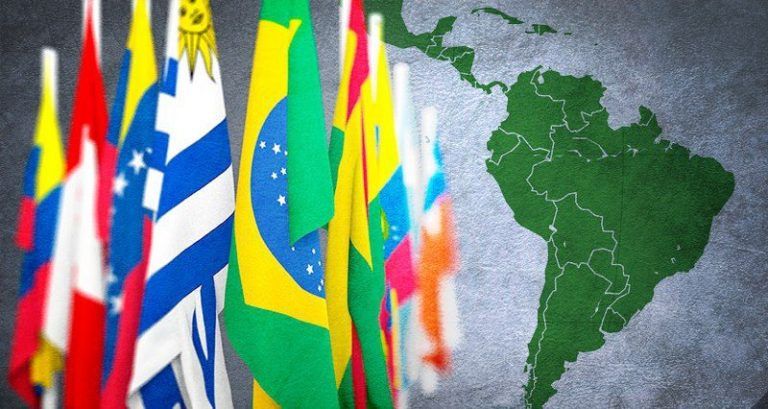Baku’s outreach to Brazil and Peru: economic synergy meets diplomatic leverage

In a world increasingly defined by multipolarity and shifting alliances, Azerbaijan’s deepening ties with Latin America are not merely symbolic; they are strategic, calculated, and transformative. The recent flurry of diplomatic and economic activity, including high-level meetings in Brazil and Peru, marks a turning point in Baku’s foreign policy: a pivot toward regions that offer untapped potential, diversified partnerships, and long-term geopolitical dividends.
Earlier this week, Azerbaijan’s Deputy Foreign Minister Elnur Məmmədov led a delegation to Lima, Peru, for the first round of political consultations between the two countries’ foreign ministries. This historic meeting, held with Peru’s Deputy Foreign Minister Félix Denegrí, commemorated 29 years of diplomatic relations and launched a new phase of strategic dialogue. But this was not an isolated event; it was part of a broader pattern of engagement that includes growing trade with Brazil, increased investment outreach, and a bold logistical move: the acquisition of handy-size vessels to facilitate fertilizer exports to Latin America.
Azerbaijan’s decision to purchase handy-size cargo ships is emblematic of its ambition to become a serious player in global trade logistics. These vessels, ideal for navigating smaller ports and regional routes, are now being deployed to transport fertilizers, one of Azerbaijan’s growing export commodities, to Latin American markets. This is not just about selling urea or ammonium nitrate; it’s about embedding Azerbaijan into the agricultural lifelines of countries like Brazil, Argentina, and Peru.
Latin America, with its vast agricultural sector and increasing demand for high-quality fertilizers, presents a lucrative opportunity. By offering competitive pricing and reliable delivery, Azerbaijan positions itself as a credible alternative to traditional suppliers. The use of handy-size ships ensures flexibility, cost-efficiency, and access to ports that larger vessels cannot reach—an operational advantage that could translate into long-term commercial relationships.
Brazil remains Azerbaijan’s most significant partner in the region. The recent visit by Deputy Economy Minister Elnur Əliyev to Brazil underscored this reality. During the inaugural session of the Azerbaijan-Brazil Joint Working Group on Trade and Investment, both sides expressed a clear intent to deepen cooperation in agriculture, transport, and energy. Brazil’s Vice President Geraldo Alckmin praised Azerbaijan’s proactive approach and emphasized the mutual benefits of closer ties.
Trade between the two nations has already surpassed $230 million in the first seven months of 2025, a twofold increase compared to the previous year. Azerbaijan exports chemical products, agricultural goods, and industrial inputs, while importing Brazilian sugar, meat, coffee, and machinery. This growing exchange is not just transactional; it reflects a convergence of interests and a shared vision for South-South cooperation.
Political Alignment and Cultural Diplomacy
Beyond economics, Azerbaijan’s outreach to Latin America is also political. Countries like Brazil, Argentina, and Peru have consistently supported Azerbaijan’s territorial integrity in international forums. Several have recognized the Khojaly massacre, and many have expressed solidarity with Baku’s post-conflict reconstruction efforts in Karabakh.
Cultural diplomacy plays a vital role here. Azerbaijan has established embassies in key Latin American capitals and formed parliamentary friendship groups to foster mutual understanding. Joint initiatives in education, tourism, and heritage preservation are helping bridge the geographic and cultural divide. These efforts are not superficial—they are building the soft power foundation for durable partnerships.
The recent political consultations in Lima were more than a diplomatic courtesy—they were a strategic investment. Peru, with its Pacific coastline and membership in the Pacific Alliance, offers Azerbaijan a gateway to Asia-Pacific markets. As Elnur Məmmədov rightly emphasized, cooperation with regional organizations like the Pacific Alliance and CELAC (Community of Latin American and Caribbean States) is essential for Azerbaijan’s global integration.
Peru’s interest in expanding collaboration in tourism, security, culture, and sports reflects a genuine desire to move beyond rhetoric. The two nations agreed to enhance technical cooperation in heritage preservation, exchange expertise, and explore joint ventures. These initiatives not only strengthen bilateral ties but also contribute to the well-being of both societies.
It is important to understand the interests standing behind every cooperation. This is because not only economic and strategic opportunities, but also cultural and other areas play a significant role. As for the question of what significance Peru could have for Azerbaijan or simply why it matters for the South Caucasus, it can be characterized in terms of geopolitical importance, economic synergy, diplomatic leverage, as well as cultural exchange.
Indeed, Peru’s strategic location, economic dynamism, and cultural richness make it a valuable partner for Azerbaijan. Strengthening ties with Lima offers several key advantages:
For instance, through Peru, Azerbaijan gains access to the Pacific Alliance and broader Asia-Pacific trade routes, diversifying its export destinations and reducing dependency on traditional markets, just from the viewpoint of its geopolitical importance.
Peru’s demand for fertilizers, energy inputs, and industrial goods aligns well with Azerbaijan’s export capabilities. Joint ventures in mining, agriculture, and logistics could unlock new revenue streams if we look from an economic perspective.
Diplomatic relations can not be set apart, as Azerbaijan seeks to expand its influence in global forums. Therefore, Peru’s support in multilateral platforms like the UN and CELAC can amplify Baku’s voice on issues ranging from climate change to regional security.
As regards cultural backgrounds, both nations boast ancient civilizations and rich cultural heritages. Collaboration in heritage preservation and tourism can foster mutual respect and people-to-people connections.
In a nutshell, Azerbaijan’s engagement with Latin America is not a fleeting experiment, but it is a strategic recalibration. By investing in logistics, diplomacy, and cultural ties, Baku is crafting a new narrative: one of resilience, ambition, and global relevance. The road ahead may be long, but the direction is clear, and Latin America is no longer a distant frontier but a vital partner in Azerbaijan’s journey toward global integration.
Here we are to serve you with news right now. It does not cost much, but worth your attention.
Choose to support open, independent, quality journalism and subscribe on a monthly basis.
By subscribing to our online newspaper, you can have full digital access to all news, analysis, and much more.
You can also follow AzerNEWS on Twitter @AzerNewsAz or Facebook @AzerNewsNewspaper
Thank you!

